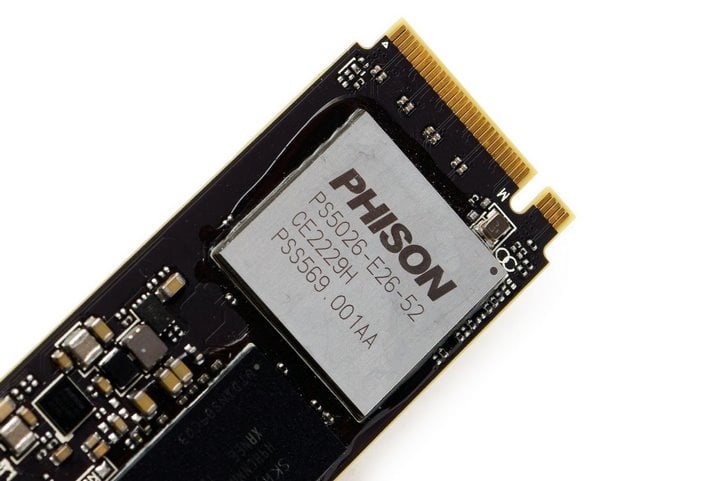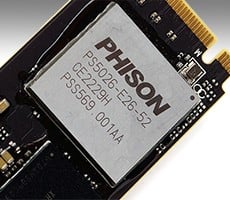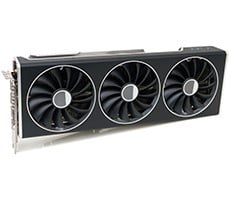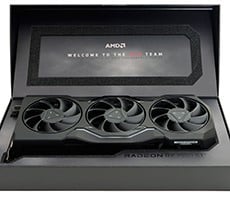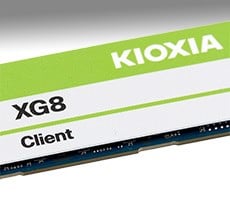Phison E26 SSD Preview: PCIe 5 Storage Breaks Out For 2023
HDTune v5.75 Benchmarks
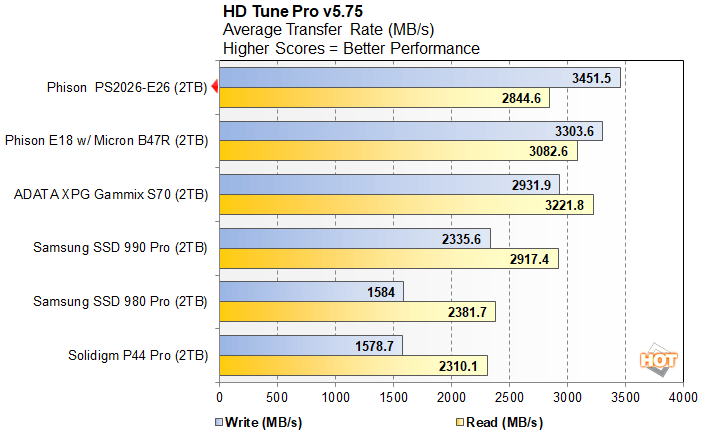
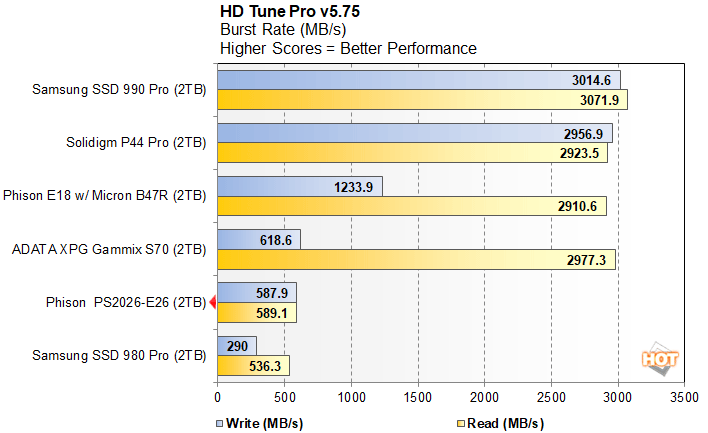
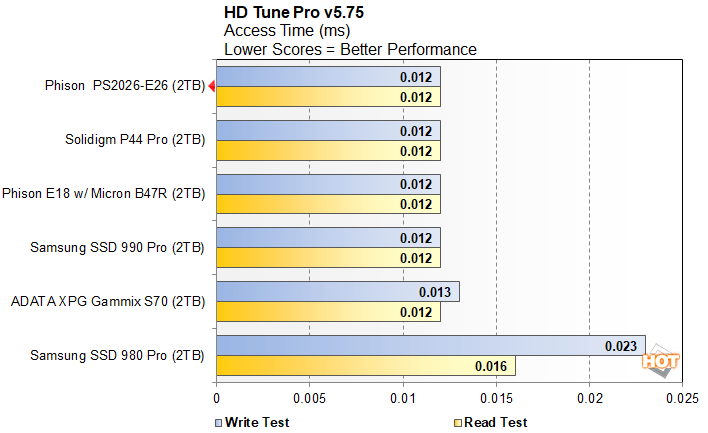
CrystalDiskMark x64 Benchmarks
CrystalDiskMark is a synthetic benchmark that tests both sequential and random small and mid-sized file transfers using incompressible data. It provides a quick look at best and worst case scenarios with regard to SSD performance, best case being larger sequential transfers and worse case being small, random transfers.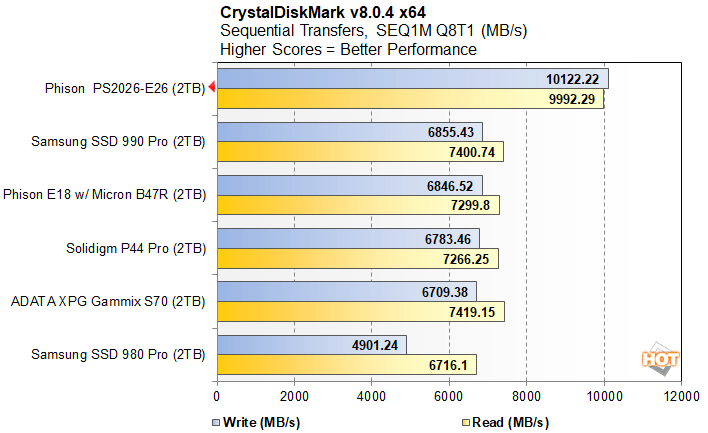
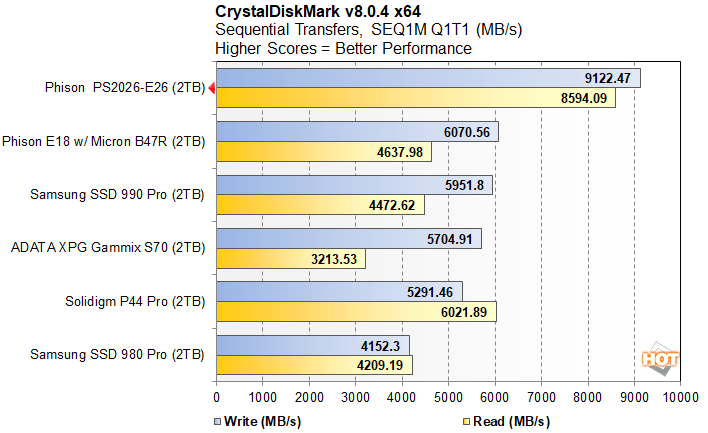
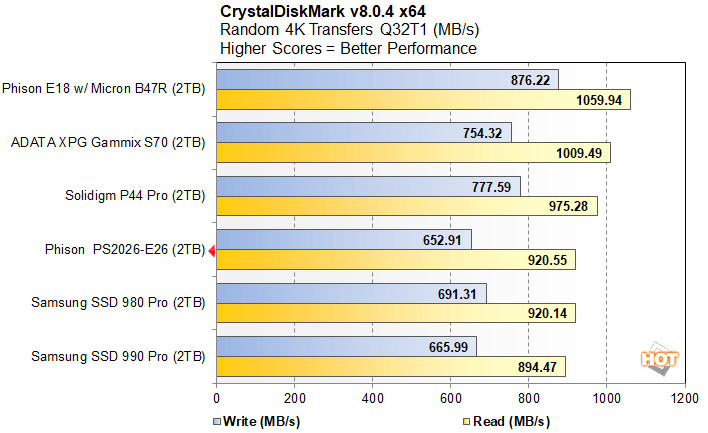
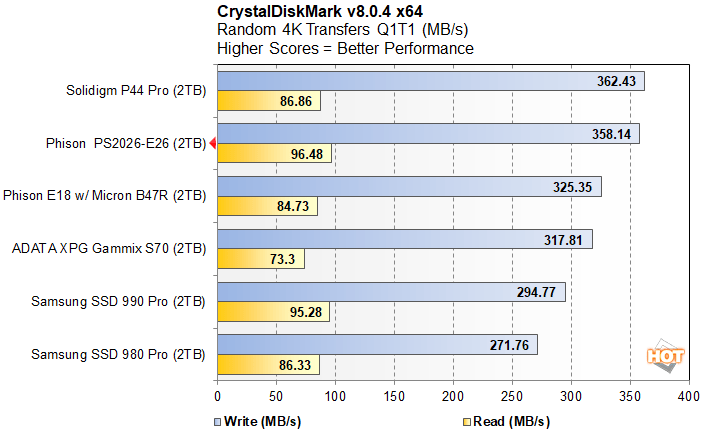
Final Fantasy XIV: Endwalker Game Level Load Times
We also tested game level load times using the Final Fantasy XIV: Endwalker benchmark. This tool loads an array of different game levels during its graphics benchmark and outputs the average result when complete.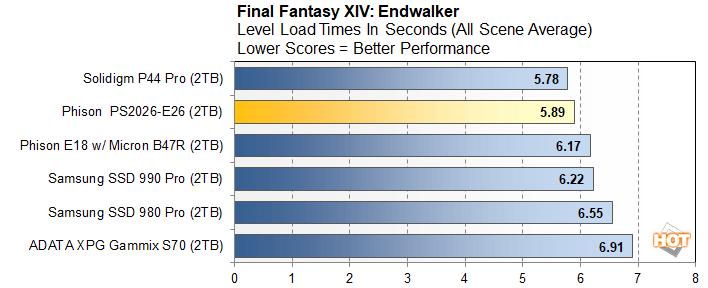
We honestly expected the new drive to best all comers in this test, which is largely a benchmark of how fast your SSD can chuck data into RAM. The Solidigm drive has exceptionally low access latency as well as a much better burst transfer rate than the Phison drive, so that's likely what allowed it to creep ahead. The difference in the two drives is a whopping 110 milliseconds, so it's essentially margin-of-error anyway; both are ludicrously fast.
UL's 3DMark Gaming Storage Benchmark
UL recently added a gaming-centric storage benchmark to 3DMark, that leverages trace-based tests of actual PC games and gaming-related activities (like streaming with OBS) to measure real-world gaming performance in a variety of scenarios. The tests include things like loading Battlefield V, Call of Duty: Black Ops 4, and Overwatch from the initial launch to the main menu, recording a 1080p gameplay video at 60 FPS with OBS while playing Overwatch, installing The Outer Worlds and saving game progress, then finally, copying the Steam folder for Counter-Strike: Global Offensive from one drive to another.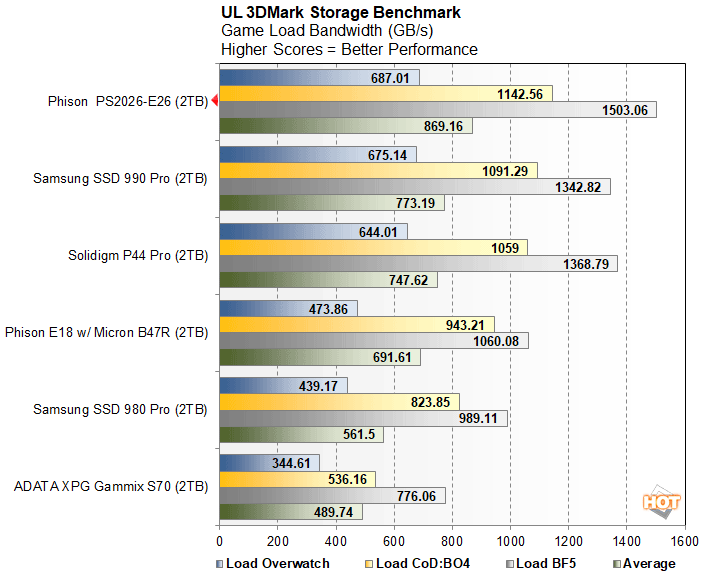
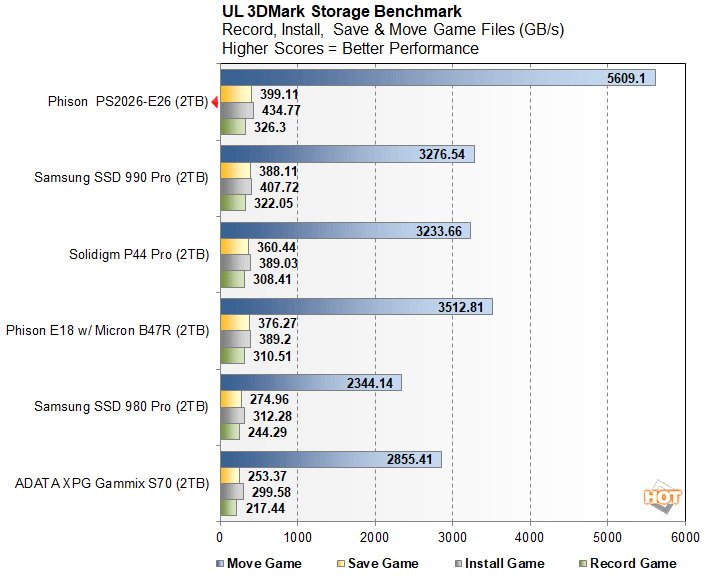
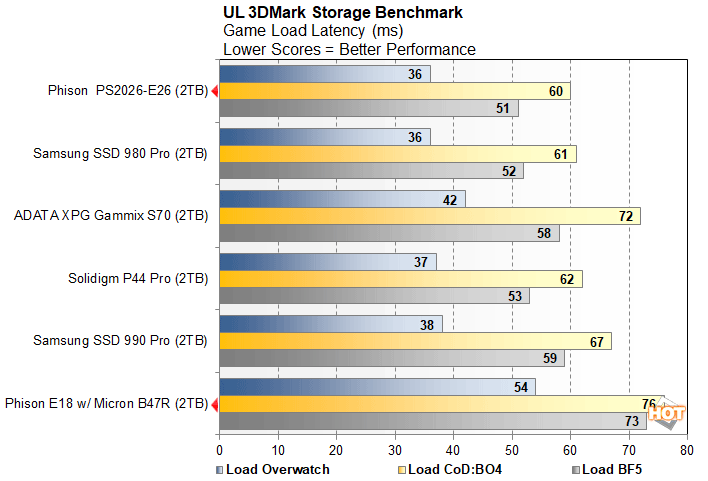
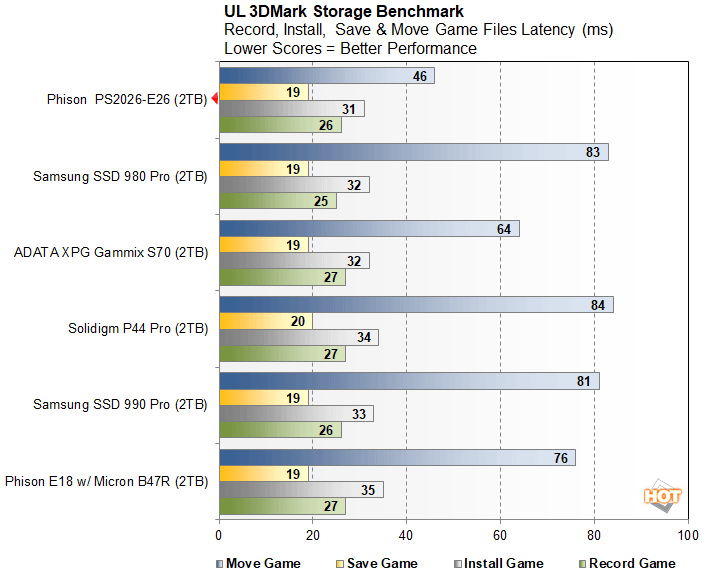
That pattern continues in these sets of tests that measure I/O latency instead of throughput. As we discussed before, higher throughput can also mean lower latency when it allows you to keep things flowing instead of filling up buffers, and that could well be why the Phison PS2060-E26 reference platform comes out on top or ties the fastest SSDs in virtually every test.
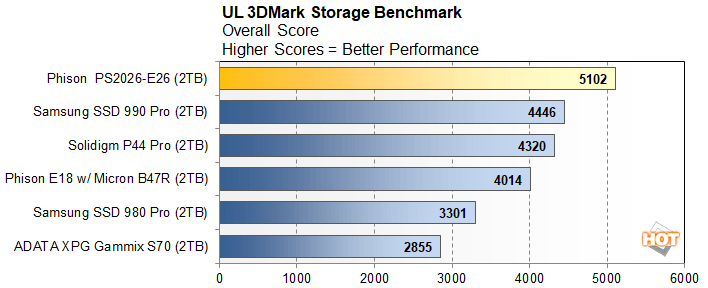
Naturally, given its performance in the individual benchmarks, the overall score for the new drive is a solid win over the other SSDs. Going all the way back to 3DMark '99, the storied benchmark utility has always favored the latest hardware, and that holds true for the new storage benchmark, too.
UL PCMark 10 System Drive Storage Test
We like PCMark 10's new quick storage benchmark module for its real-world application measurement approach to testing. PCMark offers a trace-based measurement of system response times and bandwidth under various scripted workloads of traditional client / desktop system use cases.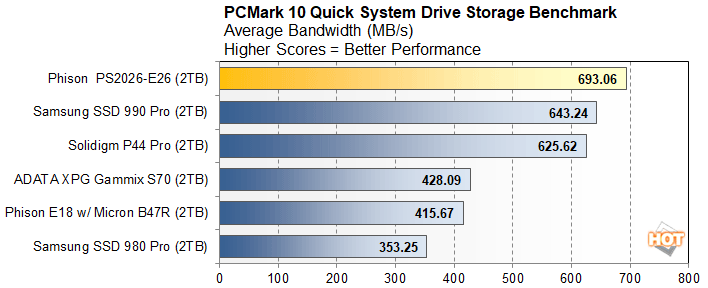
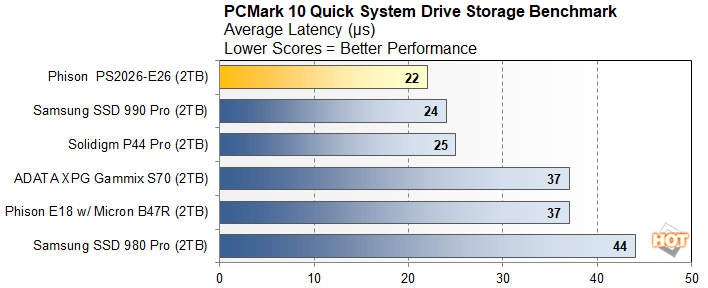
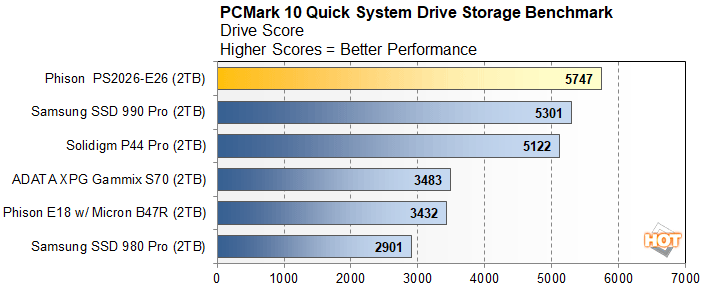
In the trace-based PCMark tests, which are comprised of a broad mix of consumer workloads, the E26-based drive takes the top spot in every metric, and by a conclusive margin, too. Aside from the Final Fantasy XIV test, these are probably the most "real-world" tests that we perform, and Phison's new SSD reference platform performs with panache, dispatching even the mighty Samsung SSD 990 Pro.
Phison E26 PCIe Gen 5 SSD Preview: The Preliminary Verdict
Overall, in the synthetic benchmarks the Phison drive blew away the competition in sequential tests but didn't always lead in random accesses. Don't get it twisted, though: we're testing it against some of the fastest PCIe 4.0 SSDs around, and even at this early stage it keeps up with the pack.This SSD is specifically tuned for DirectStorage-like workloads, so it would have been interesting to see how it holds up against other SSDs that haven't received such tuning when actual games using the technology arrive. We'll just have to wait until actual DirectStorage-enabled games hit the market, the first of which should be Square-Enix's Forspoken, releasing on January 24th.
This reference platform isn't a retail SSD. You won't be able to buy this drive in this exact form, because Phison, unlike, say, NVIDIA, doesn't sell its own branded SSDs. Instead, you'll be buying drives with these controllers from the likes of Kingston, Seagate, Sabrent, ADATA, and Aorus, among many others. Phison doesn't speak for its partners, but the company did tell us that this hardware has been released to manufacturers and that "production has started," so we expect these SSDs will be showing up sooner than later.

